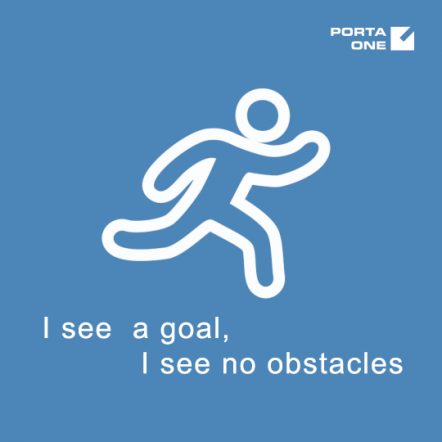First, ask yourself a question : Why do I need all this? Chuck Palahniuk once said: “If you don’t know what you want, you will end up with something you definitely don’t want.
What do we get by setting proper goals ?
- Control over the situation. A person needs to know his final destination so that he can get there.
- Sense of life. You can, of course, live in the moment, or you can enjoy achieving what you’ve planned and every step you’ve taken, which gets you closer to it. When you understand what you are aiming for, there is more sense in every action and every day of your life.
- Productivity. This is all clear: You set a goal, you decide on the steps you need to take to achieve this. And, bingo! You fulfill it .
- Confidence. Living according to your plan, controlling and directing your own development, checking what you have done. All this is very motivating and empowers you for the next steps.
Can it be done in a different way?
An alternative point of view is to focus not on the goals, but on the process that helps achieve these goals. The difference is small, but significant. The problem with the goals is that they must be achieved. If you fail to do it, everything is lost. But the concentration on the process does not have such an obvious emotional engagement. Even if we don’t reach our goal, the effort was not in vain!
For example, you can set a goal to become the best graduate of the year. But among dozens of people there will be only one to achieve this. Does it make sense to do that?
But you can change the focus and set a goal to make most of the learning process and become a qualified specialist. It is important to know how to measure it, so that you check on every point and feel good about yourself.
However, the idea behind both approaches is to know what and why you need it. How to put your goals into words so that they could be real and yours rather than imposed by society, parents or any other people.
The most important criteria for a correctly set goal is your desire to act. It should drive you, energize you. If you do not feel that way, ask yourself again whether the goal is yours or imposed by others.
For example, if you set a goal to make most of the learning process, you can measure it by testing your knowledge.
Goal Setting Techniques
There are plenty of methods for goal setting in business and personal life. Here are some of them.
1) Mark Allen’s method
This method will suit those who are more into feelings and emotions than figures.
This is what you need to do:
- Describe an ideal picture of your life.
- Reduce the volume of your writing to one page.
- Make sure that this is exactly what you really want. If necessary, rewrite and adjust the message .
- Compare the ideal picture with the one you are living in, and define the areas that need improvement.
- Phrase in precise terms what you need to improve and write it down in the form of positive affirmations. For example: “I successfully completed my studies at the PortaOne Education Center and received a job offer” or “I easily run 30 kilometres every day.
- Make a plan of actions, which are necessary for this. Start with global actions and proceed to smaller ones: plan for a year, a quarter, a month, for a week and a day.
For example: to pass TOEFL you have
- to take a course (three months)
- to write essays once a week at least
- to read books in English daily,
- to do grammar and vocabulary exercises daily.
2) Balance Wheel
A fascinating method that helps you not only to set goals, but also to figure out what you lack for a harmonious life. How do you use the wheel of balance for setting goals?
- Draw a circle, divide it into sectors, and identify each sector for the sphere of your life that you consider important. For example: career, personal life, health, friends, hobbies, finances, self-realization. The number of sectors is not limited, so select what is really important for you.
- Find out how much you are satisfied with this sphere in your life on a 10-point scale.
- Hatch the shape you have drawn. The more it resembles a circle, the more harmonious you think your life is (unless, of course, you gave three points for all spheres).
- Pay attention to the areas where you fail. Make a list of things you need to improve. Creating a plan of action is, in fact, the reason for why you started all this.
- Goals can be divided into short-term and long-term, primary and secondary. The main thing: they must be measurable and have a deadline.
3) Causation and Efficiency
These unusual words describe two different approaches to goal setting.
Causation is when you know what resources are needed to achieve your goal and find them.
Efficiency is when you analyze what resources you already have and how they can be useful to you. This approach is really cool because it allows you to start moving towards your goal immediately, taking into account your strengths, resources, expertise, etc., rather than waiting until you have time, cash, ties.
Whatever methodology you choose, your goals must meet these criteria:
- Specific formulation. Not to lose weight but lose weight by 5 kg or get 5 cm thinner in the waist.
- Avoid negative particle “not” . The goal “ to be healthy is much better than “not to get sick”
- Global goals must be divided into sub-goals and specific tasks. This is an important condition to come close to implementation.
- Each goal must have a deadline.
- The goals must be recorded. It might be a list in a notebook, a file on your computer, mind map, a collage on the wall. Choose what suits you.
- You need to control the process of achieving goals. And that is probably the most important aspect.
Decide how often you will check on your goals and the list of tasks based on them. Put down everything you have already done and plan the next steps. This regular review of your tasks is the best way to focus on your goals.
Why are the goals not fulfilled?
You can do everything right, but at the end of the year you find yourself in front of an empty list of unrealized desires. Why does this happen?
There are at least two reasons:
- At every moment we have a system of connections that is aimed to maintain people’s life balance .
- At every moment we have a specific combination of resources.
These two reasons work simultaneously. As a result, we have what we have.
So, whatever approach you choose, keep in mind that the goals should be yours, and they must energize you, motivate you to do great things. Formulating goals for a year is not an easy task. You will need a lot of strength and energy. Take your time to do that. The best option is to spend some time on your own. Go to the country-house for the weekend and think about your desires and goals, while nobody disturbs you. A few hours in your favorite cafe is as good as a few hours in peace and quiet at home. The main thing is to stay in an environment that encourages you without being disturbed.
Don’t be hard on yourself. Follow your guts, listen to your desires. It’s harder than making a wish while the clock strikes 12. But they are more likely to come true!




